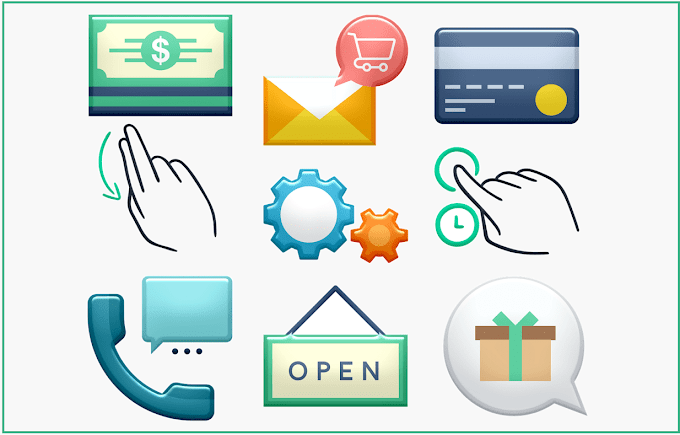
Technology is a fundamental resource, both outside of a career and within one. When it comes to career-boosting methods, tech is often the number one choice — whether using tech directly or using technology to help you find the extra information you need relating to your career.
When it comes to a career in data, there are many options out there and many ways that tech can help progress your career.
How Tech Can Help Your Data Career
• Personal Research
If you want to find out all you can about the data opportunities out there for you, then tech is going to provide that. Using online search, online researching, and conversations through tech, you can discover data roles available to you. You can also find the necessary information relevant to any career path you might want to take, such as what experience you need or the qualifications expected for certain roles.
• Networking Opportunities
The job market can require career networking to get your foot on the ladder or to get noticed by the right people. The online world is abundant with networking opportunities, with social media being at the fore. Professional career-related sites, such as LinkedIn, can help you connect with people in the same data career field or research companies that are hiring for data roles.
Any social media platform can help you start conversations relating to your career, and you could even find a dedicated career or business forum in the data field for contacts and advice.
• Company Research
If you're considering applying for a data role with a specific company or even preparing for an interview, tech provides the tools needed for you to research your potential new company. Using online search and their official business pages — such as their website or social media profiles — you can explore what their company is about, what they stand for, and how you can understand their company. What this means is that you can make an educated decision on whether the company would be right for you and your career and — if so — how you can use the information gleaned to impress during an interview.
• Online Learning Opportunities
If you want to advance your data career, you may be considering the qualifications or degrees which can help you to do that. To rise to the top of your field, gaining qualifications and higher degrees, like a master's, can really help to give you the edge over the job competition. Not only that, but qualifications will allow you to learn more about data as a whole and hone your useful skills to further your understanding.
Online learning allows you to achieve all that in a flexible way. You can look to gain an online qualification either from home full-time or have an online schedule worked around any other commitments you might have, like a full-time job.
Technology has really revolutionized the way students can learn, especially distance learning. See this link for more.
• Getting Familiar with Data
You may even want to use tech in your own time to get used to data software and learn more about using data for insights. Perhaps you want to explore analytics and finding patterns in data using your own projects or become more familiar with standard data software. Using and analyzing data as a hobby can help to boost your understanding of your chosen career, as well as helping to give your resume a boost too.
Top Data-Related Career Options You May Want to Consider
There's no doubt that data is an in-demand commodity for many businesses, which means data-related careers are going to be in-demand, too. As tech and data grow, the potential for new and evolving job roles may grow, too.
If you're exploring your data career options, here are just a few ideas of what you could be looking for.
• Business Intelligence Analyst
This is a key role within a company, in which you will be analyzing key data and transforming that into useable insights. These insights can then be used to further business processes and make improved business decisions. This role may see you sorting through high amounts of data looking for general patterns, or you may be tasked with looking for specific patterns within data. This combines great data and technology skills as a role.
Average annual salary according to the U.S. Bureau of Labor Statistics: $85,260.
• Data Analyst
Similar to the role of a business intelligence analyst, data analysts will work with high amounts of data with the intent of transforming data into insights which businesses can then use to improve themselves. Alongside translating data into insights, this role may also see you developing ways to make future insights even easier.
Average annual salary according to Springboard statistics can range from $56,043 to $87,713, depending on experience level.
• Big Data Engineer
Similar to data analysts, big data engineers are tasked with turning business data into useable insights. As well as providing insights that companies can use to make smarter business decisions, a big data engineer may also be responsible for retrieving data from a variety of sources and analyzing it to be able to provide a report.
A big data engineer may also be responsible for the software and hardware side of a company, especially those systems which use and work with data.
Average annual salary according to Glassdoor statistics can range from $137,776 to $194,000, depending on experience level.
• Data Scientist
This is a huge role within the data and tech field, which requires you to develop new processes for data extraction, data modeling, and production. You will study data and experiment with data in order to present specific findings and information. You may be required to develop certain models or algorithms, as well as prototypes and analyses.
Average annual salary according to the U.S. Bureau of Labor Statistics: $100,560.
• Database or Software Developer
Within this role, it would be your responsibility to monitor and analyze database processes with the intent of creating maximum efficiency and modernization. As well as monitoring existing database performance, you may also be tasked with creating new databases, as well as working to solve any problems.
Average annual salary according to the U.S. Bureau of Labor Statistics: $107,510.
5 Bonus Tips for Getting Started with Your Data Career
1. Build Your Knowledge and Experience
There's no doubt that the more you know about data, the better, so giving yourself the best background when it comes to learning is key for jumping into the competitive job market. Be sure to seek any relevant qualifications for data and try to build your experience of understanding, and working with, data.
2. Work on Updating Your Other Skills, Too
A successful career in data isn't just dependent on your data skills. There are many other skills you may need to explore for specific roles, such as:
• Communication skills. You may need to communicate what you have found in terms of data reporting or be able to discuss insights and feedback in a relevant fashion.
• Organization. You will need to be highly organized to be able to work with large amounts of data.
• Efficiency. You may need to learn how to handle your time most productively when dealing with large amounts of data to work through.
3. Take Some Time to Consider the Right Role for You
As can be seen from the examples listed in the previous section, there can be a lot of varied roles when it comes to data, and each will have its own development path. If you're keen to work with data, take some time to research your ideal role and the way in which you'd like to work with data.
You should also take into account salary expectations and the potential for future progression.
4. Spend Time with Other Data Professionals
Being around other people who work with data can be very beneficial for your own learning path and motivation. This could be on a personal level within a friendship group or pastime or gaining more experience in a data working environment. You may even want to seek a mentor who has progressed within their own data career to offer advice.
This can help you to develop further understanding, as well as surrounding yourself with data information and putting your skills into practice.
5. Practice
There's only so much you can learn from data theory and information. To truly get accustomed to working with data and how you can use it for valuable insights, try practicing with data and combine your theory with practical tasks.
In Closing
Working with data can be a rewarding and lucrative career choice because it's so relevant in the modern age. Combined with the powers of technology, there are many great ways you can explore data, learn to use it, and find your perfect career. When using tech to boost your data career, think about the ways in which tech can help your learning potential, as well as how it can provide efficiency for your data career search.




![Performance Marketing - What Is it & How It Works [+ 6 Tools You Can Use]](https://blogger.googleusercontent.com/img/b/R29vZ2xl/AVvXsEj0akcIPU36HHfqWoYrb2LCMNG8OvxPb9drUYKWJZvSXmfbJG0OrjN5jfzTFDmT-9MKcuZt-G-66PiLlIVjgX1DwCNzHeIMW0pjW7W3IB2rZYzx4ISbL2T6JC4M38eubqHxQ3e71l2_n7oxh2f2QdV3d1prJ6z9HQNsSyfjtO18diLxEZg-5wD-I6RINFY/w680/performance_marketing-min.png)





0 Comments